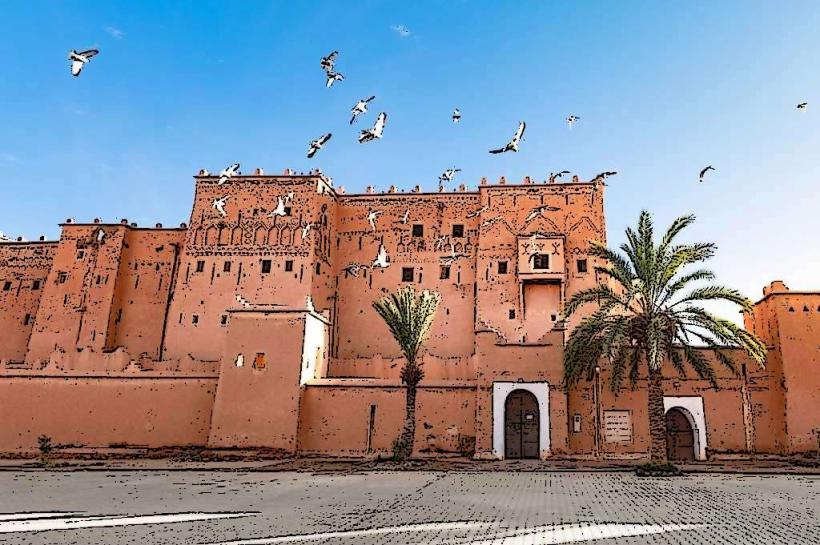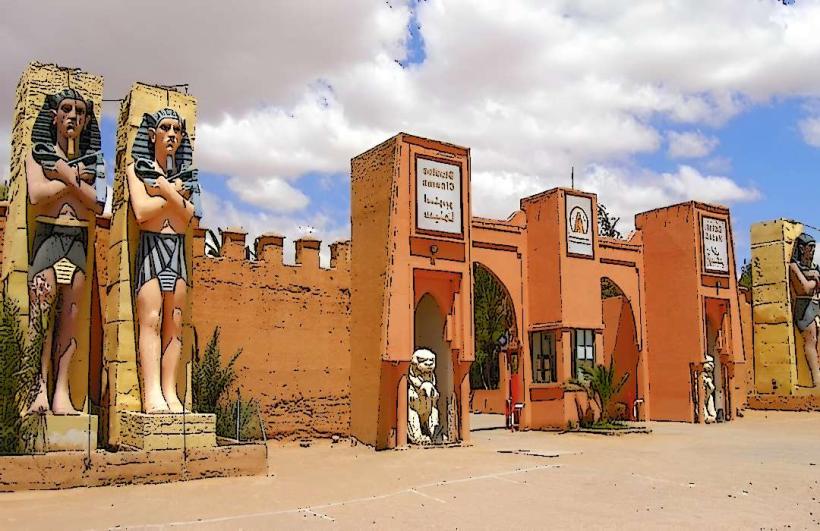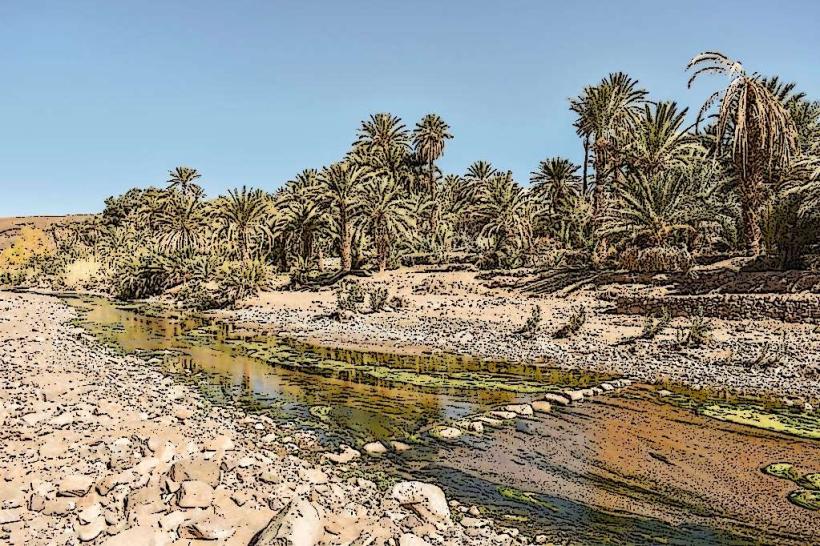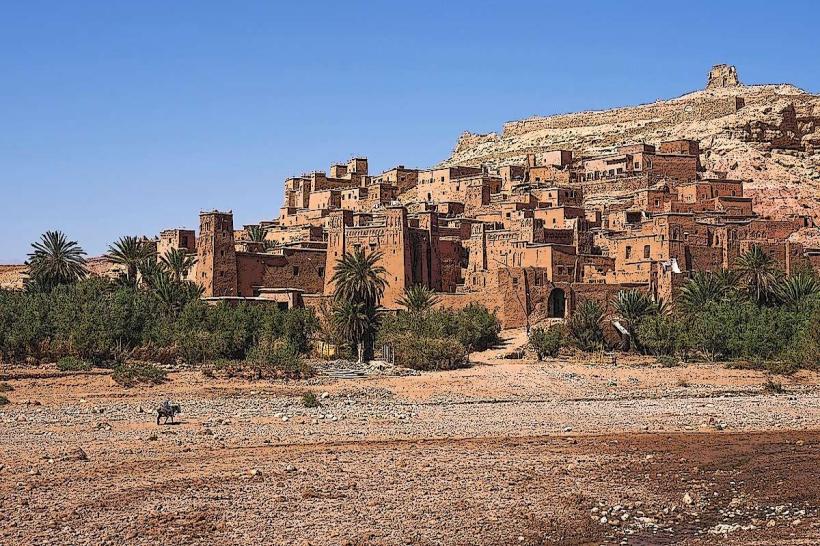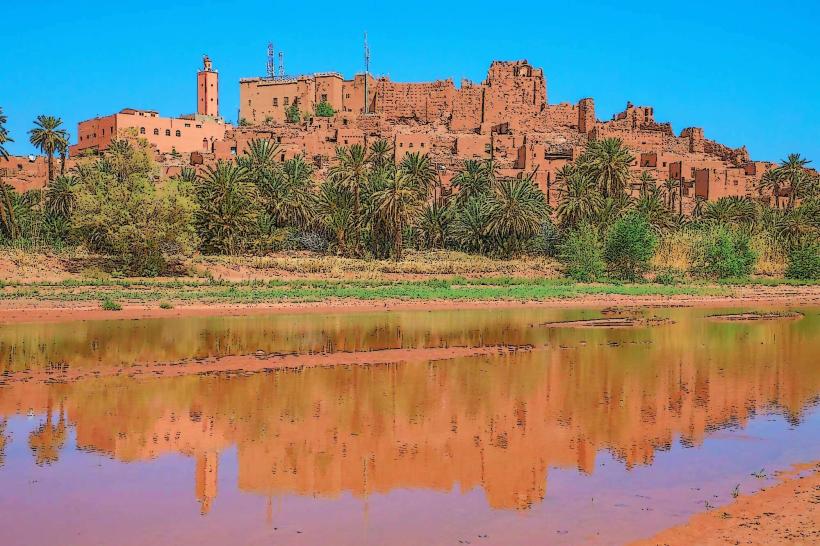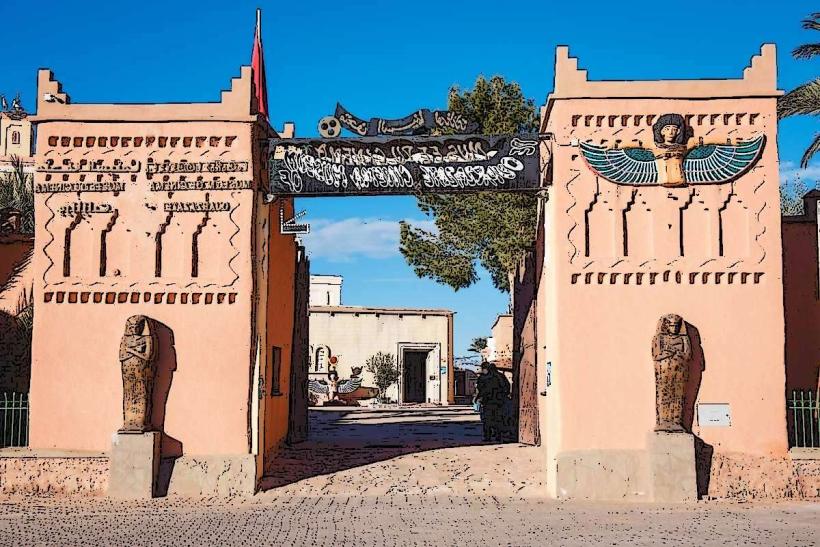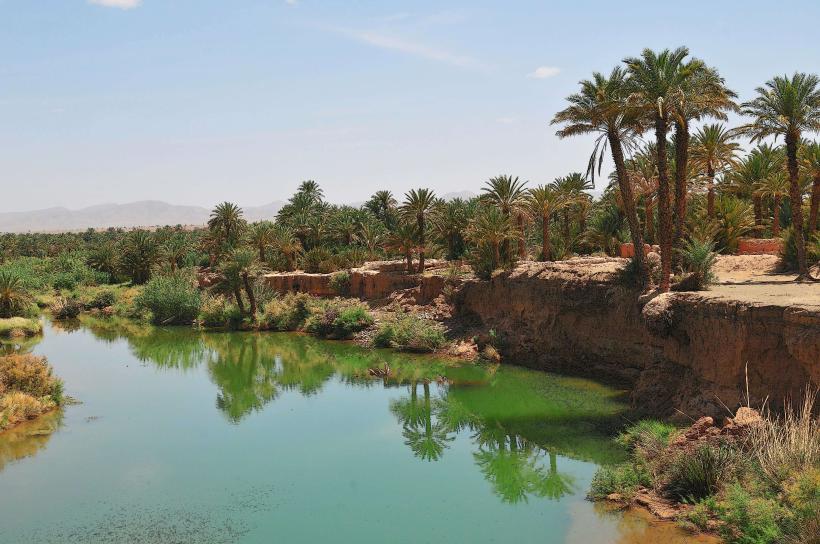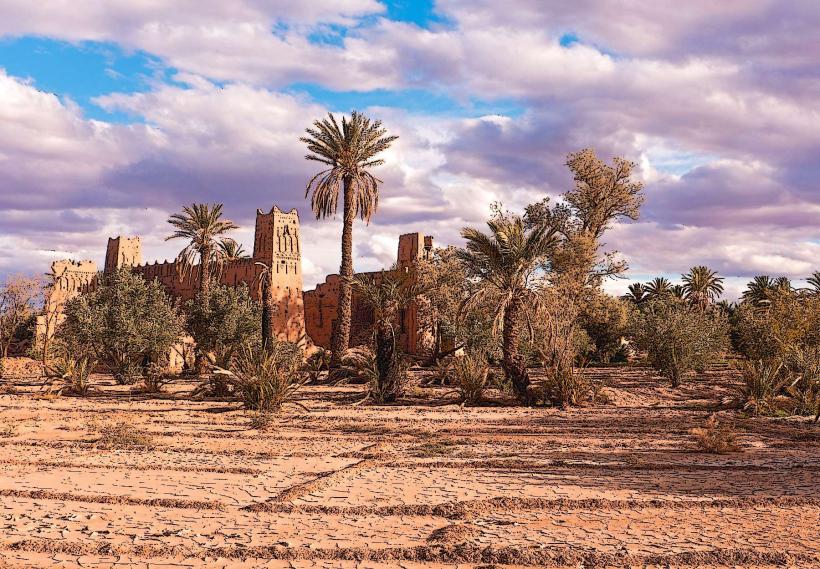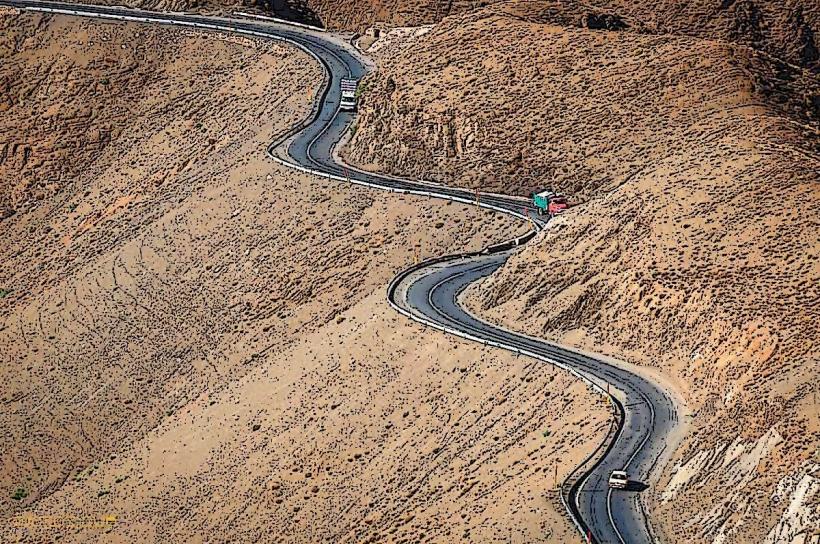Information
Landmark: Telouet KasbahCity: Ouarzazate
Country: Morocco
Continent: Africa
Telouet Kasbah, Ouarzazate, Morocco, Africa
Telouet Kasbah is a historic fortified palace located in the High Atlas Mountains, approximately 80 kilometers northwest of Ouarzazate, Morocco.
Visual Characteristics
The kasbah is constructed primarily from pisé (rammed earth) and adobe, with sections of stone. Its exterior presents a weathered, earthy brown hue, punctuated by crenellated towers. The interior features elaborate tilework (zellij), carved plaster, and painted cedarwood ceilings, particularly in the reception rooms. The structure is multi-storied, with courtyards and residential quarters.
Location & Access Logistics
The kasbah is situated in the village of Telouet. Access from Ouarzazate is via the N9 highway towards Marrakech, then turning off onto the P1506. The drive is approximately 1.5 hours. Parking is available adjacent to the kasbah. Public transport options are limited; shared taxis (grand taxis) can be hired from Ouarzazate, or a private vehicle is recommended.
Historical & Ecological Origin
Construction of Telouet Kasbah began in the 19th century, with significant expansion and embellishment occurring in the early 20th century under the Glaoui family. It served as the administrative center and residence for the powerful Glaoui chieftains, who controlled the caravan routes through the Atlas Mountains. The kasbah is built on a strategic hilltop overlooking the Ounila Valley.
Key Highlights & Activities
Exploration of the kasbah's surviving rooms, including the reception halls and private quarters. Observation of the architectural details and decorative elements. Walking the grounds surrounding the kasbah for views of the valley.
Infrastructure & Amenities
Basic restroom facilities are available on-site. Limited shade is present within the covered sections of the kasbah. Cell phone signal is generally weak to non-existent within the kasbah itself. Small local stalls may offer water and snacks in the village of Telouet.
Best Time to Visit
The best time of day for photography is mid-morning or late afternoon when the sunlight casts defined shadows on the rammed earth walls. The months of April to June and September to October offer pleasant temperatures. Avoid midday sun during the summer months.
Facts & Legends
A notable historical oddity is the sheer opulence of the interior, particularly the reception rooms, which were designed to impress visiting dignitaries and showcase the Glaoui family's wealth and power, contrasting sharply with the kasbah's otherwise austere exterior. The kasbah was largely abandoned after the Moroccan independence in 1956.
Nearby Landmarks
- Aït Benhaddou (45km Southeast)
- Ouarzazate City Center (80km Southeast)
- Atlas Film Studios (85km Southeast)
- Ksar of Ait-Ben-Haddou (45km Southeast)
- Dades Gorge (150km East)

